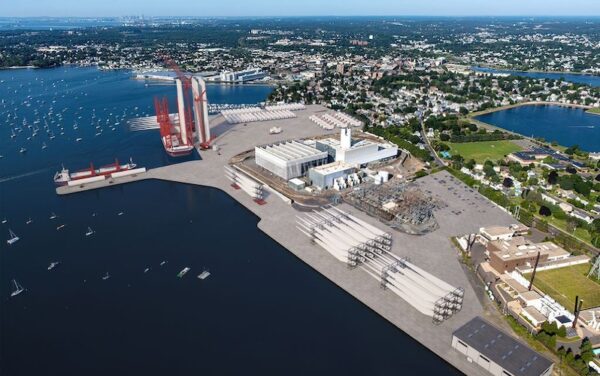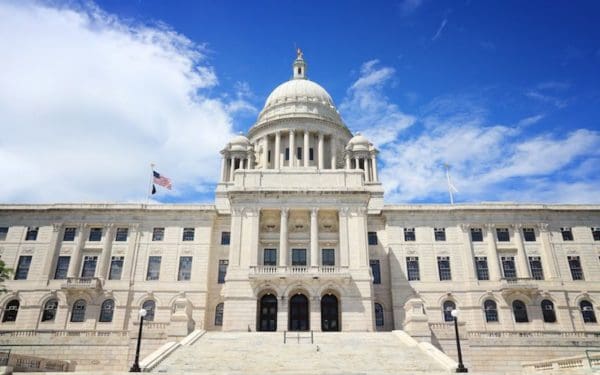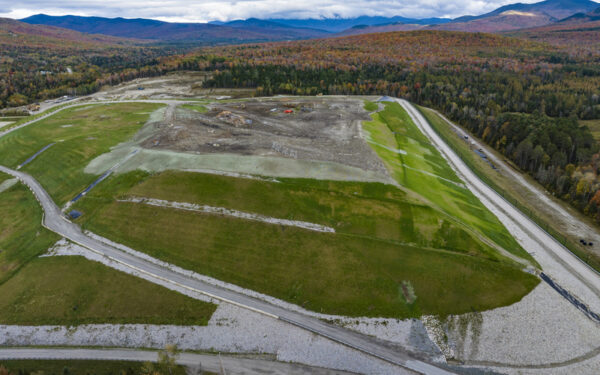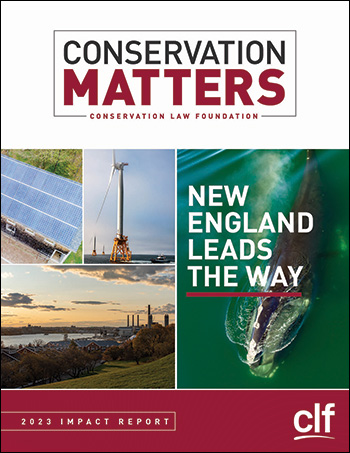Jun 28, 2024
The U.S. Supreme Court has overturned 40 years of precedent and practice comprising the “Chevron doctrine,” under which federal courts defer to an agency’s interpretation of ambiguous legal terms when Congress has given that agency authority to implement the law.
Jun 25, 2024
Electrifying Massachusetts’ commuter rail can help reduce pollution and improve service, particularly for environmental justice communities. We are making strides in that direction.
Jun 25, 2024
Thanks to bottle bills, many New England states have increased recycling rates and now rank among the top states in the country. New Hampshire still lacks a bottle bill. Learn why that matters.
Jun 24, 2024
CLF worked with Salem Alliance for the Environment (SAFE), a local community group, to negotiate with the mayor of Salem and an offshore wind developer a legal contract known as a Community Benefits Agreement. Here, we present 5 takeaways from our work with the local community.
Jun 06, 2024
This situation underscores the urgent need for an Environmental Justice Act in Rhode Island to ensure that marginalized communities have equitable access to green spaces and are protected from environmentally harmful decisions.
Apr 18, 2024
Most people don’t realize that landfills, when working as intended, send poisonous chemicals into our waterways. Those chemicals – poly- and perfluorochemicals, or PFAS for short – are called “forever chemicals” because they do not break down in the environment or in our bodies. These toxic substances are linked to a growing number of health… Continue reading Warning: Toxic “Forever Chemicals” in Landfills Put People and the Environment at Risk
Apr 11, 2024
Organizing a trash cleanup will only make a tiny dent in all the plastic we toss, but it’s still a great opportunity to care for the environment, get some steps in, and connect with friends and neighbors. They also highlight the detrimental effects that plastic has on our planet! Here’s a guide to plan yours.
Apr 10, 2024
“We can’t let polluters trample on the public’s right to oppose projects that put their health and environment at risk,” said CLF attorney Nora Bosworth. “This law ensures communities get a chance to make their voices heard and places critical safeguards around Casella’s dangerous plans to expand this landfill. Preventing these forever chemicals from continuing to poison the Penobscot River means protecting a water source sacred to the culture and livelihood of the Penobscot Nation.”
Apr 05, 2024
The climate crisis threatens our lives, economy, land, air, and water. The actions we take between now and 2030 will shape New England’s future and that of our children and grandchildren. Every year, every month, and every day count. With nearly 60 years of success tackling the toughest environmental challenges, Conservation Law Foundation understands the… Continue reading Conservation Matters Spring 2024: Impact Report
Mar 28, 2024
“None of this would be possible without the tireless advocacy from MBTA riders who have called out to make fares more affordable for years,” said CLF Transportation Attorney Seth Gadbois. “The reduced-fare program sets us up on the right track to ensure no rider is forced to miss the next stop in their journey. But we must continue to push to make this program even stronger in the long run.”










